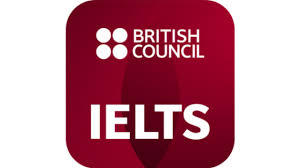British Council, University of Southampton and FutureLearn have teamed up to create an interactive online course, ‘Understanding Language: Learning and Teaching' like no other. This 4-week language course is aimed at graduates with an interest in the development of languages and language teaching.
Over 4 weeks, the course will help to have an introduction to some key concepts in the effective teaching and learning of languages. The course starts on April 4, 2016.
Course At A Glance
Length: 4 weeks
Effort: 3 hours/week
Subject: Understanding Language: Learning and Teaching
Institution: British Council, University of Southampton
Languages: English
Price: Free
Certificate Available: Yes
Session: Starts on April 4, 2016
Providers' Details
British Council and FutureLearn are providing this online course on English language. The British Council's high profile work in English, the Arts and Education & Society helps hundreds of millions of people worldwide to learn about and experience creativity and excellence from the UK. Millions of talented people of all ages – but particularly younger people – engage face-to-face and online learning English, developing new skills, experiencing life and study in the UK and earning UK qualifications.
FutureLearn offers a diverse selection of courses from leading universities and cultural institutions from around the world. These are delivered one step at a time, and are accessible on mobile, tablet and desktop, so you can fit learning around your life.
Ranked among the top 100 in the world, Southampton is a forward-thinking university that works at the cutting-edge of research, bringing a positive impact to global societies in a wide range of areas such as computer science, oceanography, sustainable energy, engineering and medicine.
About This Course
What is language? How do we learn meaning in a new language? What is easy and hard about learning another language? And what is the best way to teach other languages?
This free online course suggests some answers to these questions. It has been developed by the University of Southampton and the British Council, and draws on their exciting joint online course, MA in English Language Teaching.
Why Take This Course?
This is a free online course it can be accessed free of charge. It will introduce applicants to some of the latest ideas in research and practice in language learning and teaching.
The course includes quizzes, activities, discussions and videos filmed around the world. The videos feature experts such as British Council teachers, and staff and students at the University of Southampton..
Learning Outcomes
The course provides an introduction to some key concepts in the effective teaching and learning of languages.
Requirements
– This course is aimed at graduates with an interest in the development of languages and language teaching. It will give you a taste of postgraduate study in the field of English language teaching. However, no prior knowledge is required to take part in the course and we welcome anyone who is curious to know more about language learning and teaching.
Instructors
-Sara Pierson & Darren Paffey
Darren: Senior lecturer at the University of Southampton
Sara: Head of English for Education Systems at the British Council (Sara).
How To Join This Course
- Go to the course website link.
- Sign Up At FutureLearn
- Select a course and Join
- Once a course has started, you will be able to access the course material
- After the start date, you will be able to access the course by following the Go To Course link on your My Courses page.
- Applicants can buy, to show that you've completed a FutureLearn course.
- On some FutureLearn courses, learners will be able to pay to take an exam to qualify for a Statement of Attainment. (These are university-branded, printed certificates that provide proof of learning on the course topic(s)).
